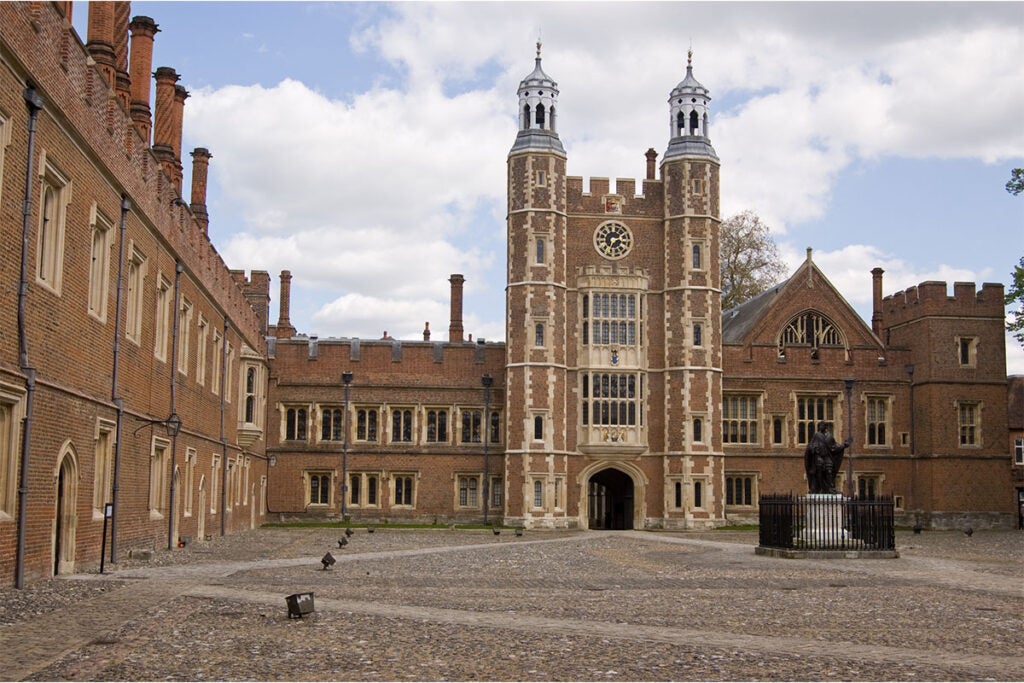
2023 has been a taxing year for international UHNWs. Not only have they had to grapple with the increasingly likely prospect of upcoming policy changes under a Labour government, but 2023 has also seen HMRC step up its bureaucracy.
[See also: Spear’s Tax Survey 2023: what a Labour government could mean for the UK’s tax landscape]
Most significantly, Labour’s Sir Keir Starmer and shadow chancellor Rachel Reeves have pledged to scrap the non-dom regime in its current form if they are elected next year – prompting many non-doms to engage the advisory community to work out their next steps. Labour have said that the proposal could net the Treasury an extra £3.2 billion a year, a statistic which has been reaffirmed by the Wealth Tax Commission.
‘With Labour, people who make the UK their home will contribute to this country by paying tax on their global income,’ shadow chancellor Rachel Reeves said around the time of the announcement. Reeves has said the party would replace the policy with a shorter-term scheme.
[See also: Why the conservatives may wait until March 2024 for an announcement on inheritance tax]
In a bid to position itself as a party in favour of wealth creation, a slate of other notable tax rises have been ruled out by the opposition, with Reeves saying earlier this year that Labour would not pursue a mansion tax, wealth tax, or changes to capital gains.
What’s happening to inheritance tax?
Meanwhile, to shore up its own support, it has been widely reported that the Conservatives have mulled over scrapping inheritance tax before the next election. Any policy change was notably absent from the autumn statement many advisers now think a policy change could come in the Spring Budget, which would be aptly timed before a potential May 2024 election.
‘There was much speculation about possible SDLT and IHT cuts, but clearly the Chancellor is keeping his powder dry on this topic, perhaps deciding that those tax cuts are better dealt with in the March 2024 Budget which, of course, will be much closer to the general election,’ leading private client tax lawyer James Quarmby explained to Spear’s.
Non-dom changes spark fears of an UHNW exodus

Many international families and entrepreneurs are considering leaving off the back of Labour’s proposed non-dom regime changes – drawing up ‘fire escape plans’ to give themselves new options around citizenship and residency, as well as access to attractive new tax regimes.
[See also: The non-doms leaving the UK to escape a new Labour government]
As a group, international UHNWs are already creating plans to leave which can then be enacted if a Labour government is installed after the election, according to tax and immigration specialist David Lesperance. He previously told Spear’s: ‘You’re gonna go when you smell the smoke.’
Among the most popular options for HNWs looking to relocate are Italy, Switzerland, and the US. Italy has a ‘special tax regime’ which allows new HNW residences to pay a flat rate of EUR 100,000 a year on foreign earnings, while Portugal operates a non-habitual tax regime.
[See also: Is this how to save the non-dom regime?]
Yet these policies do not guarantee entry.; UHNWs heading for the Amalfi Coast may have to consider an investor visa, which can be obtained through a considerable financial contribution or investment within the country. It is also now harder than it was in 2022 for the super-wealthy to head towards the Algarve for a sunny and tax efficient lifestyle, with the Portuguese government significantly tightening its Golden Visa regime, which had previously allowed many to purchase property to secure a visa.
VAT levy on private school fees

Labour is also planning a VAT levy on private school fees, a move which the party estimates could bring in £1.6 billion. However, the assumptions that figure is based on have led to intense scrutiny. It is based on an IFS prediction that only 5 per cent of pupils would switch over to the state sector given the levy, although one educational consultancy has predicted as many as a quarter of pupils could migrate over. If this other estimate pans out, the tax take from the policy would only be £19 million.
[See also: Why Labour’s plans for VAT on private schools might not add up]
In a social media post examining the proposals, Aon pensions specialist Paul McGlone compared Labour’s sums to the much-contested ‘£350 million a week’ figure which ran on the side of the Vote Leave’s ‘Brexit bus’, although expert reputation adviser Terence Fane Saunders told Spear’s earlier this year that the VAT policy play was likely intended to appeal to the ‘median voter’.
The rise of the ‘tax-fluencers’

Another key trend which defined the tax landscape in 2023 was an increased dose of tax positivity among the UHNW advisory community – with a series of high-profile voices emerging who are advocating measures to increase the tax take from the global super-rich.
One key player has been Patriotic Millionaires UK, a group of British entrepreneurs who are advocating for a ‘modest’ tax on wealth, perhaps of around 2 per cent on assets held annually above £10 million. Its members include former Citibank trader and YouTuber Gary Stevenson, who is set to release his new book The Trading Game in the New Year, Julia Davies, who co-founded Osprey Europe and has since used her millions on impact investing and environmental initiatives, and Graham Hobson, the founder of PhotoBox.
‘In a way, we have got to have a society that recognises and rewards effort and risk,’ Davies told Spear’s. ‘[But] that doesn’t mean you have to have the level of inequality we have now. It’s just so extreme.’
Her sentiments are echoed by Stephanie Brobbey of the Good Ancestor Movement. Once a successful private wealth lawyer, Brobbey was spurred to create the progressive advisory firm after learning that there were more food banks than branches of McDonald’s in the UK. Her firm has been created to offer an ‘alternative’ to most of the private wealth industry, which she says is designed to ‘accumulate wealth, however excessive’.
The prevalence of an ‘anti-tax’ culture
In June, her movement released a report which found an ‘anti-tax’ culture was prevalent in the private client industry.
[See also: Is the private wealth industry failing its clients?]
‘There is a strong sense of “anti-tax” politics within industry that informs relationships with regulators,’ the report read. ‘It is also seen as failing to fulfil any potential role in supporting government to identify where tax loopholes exist, or where regulations are being used beyond their intended purpose.’
It concluded by recommending ‘four innovations’ to combat anti-tax narratives, including a pledge that firms can make to ‘depoliticise’ language deemed ‘anti-tax’ in favour of ‘tax neutral language’, as well as new training around tax-positive values for private client advisers.
Global tax for the super-rich?

The call for the super-rich to pay their fair share was reaffirmed in October by leading economist Joseph Stiglitz, who wrote in the EU Tax Observatory’s Global Tax Evasion 2024 report that it was ‘time to establish a global minimum tax on the very rich.’
[See also: Why Joseph Stiglitz is calling for a wealth tax on billionaires]
‘If citizens don’t believe that everyone is paying their fair share of taxes— and especially if they see the rich and rich corporations not paying their fair share—then they will begin to reject taxation,’ Stiglitz wrote in the foreword for the report.
The era of Dan Neidle
Another leading ‘tax-fluencer’ to emerge in 2023 was Dan Neidle, a former Clifford Chance partner who now spends his time demystifying tax policy and looking into the tax affairs of wealthy figures through his blog, Tax Policy Associates.
It all started in the summer of 2022, when Neidle questioned whether former chancellor Nadhim Zahawi owed HMRC millions of pounds in tax which was later paid. ‘Did Nadhim Zahawi use an offshore trust to avoid almost £4m of capital gains tax?,’ ran the headline of his blogpost that July.
Neidle told Spear’s: ‘I wanted tax people to contribute more to public discourse and thought I could help with that. I never anticipated the degree to which the Zahawi thing would blow up. I’m currently a weird combination of technical specialist and amateur-level journalist.’ Since, his profile has soared: he now frequently provides commentary on tax issues in the national press, most recently writing an opinion article for The Times about Baroness Michelle Mone’s connections to PPE Medpro this December.
More bureaucracy than ever
Tax in 2023 has also seen UHNWs paying more administrative costs to sort out their tax affairs than ever before.
A new requirement by the taxman for trustees to sign up to the Trust Registration Service (TRS) led to an increase in the number of trusts and estates recognised by officials. The number of trusts counted on TRS was 33,000 in the year to the end of March 2022, but that has since surged to 462,000 in the same period for 2022/2023.
[See also: Trusts decline further as HMRC bureaucracy intensifies]
‘There’s so much new compliance that, a few years ago, trusts didn’t have to deal with,’ says Wedlake Bell partner Nick Mendoza. ‘I think clients are thinking, “I’m setting up a trust here with what is essentially a fairly small amount of money, do I really want to go through all of that compliance and all the costs that goes with it?” And it’s just not cost effective.’
While the rule change first came in October 2020, ‘it was August 2022 when most people were doing them’ – before the 1 September 2022 deadline, which led to a frenetic period for many tax advisers, she said. ‘It was absolutely manic, particularly because it was holiday season.’
Tax changes in the Middle East
Meanwhile, there are tax changes in the Middle East that UHNWs should stay abreast of. In June this year, UAE’s government introduced corporate tax, which is the first form of direct tax set to be implemented as the country embarks on its new economic strategy.
Taylor Wessing partner Jerry Parks, told Spear’s that he is urging clients to prepare for the potential impact of corporate tax on property portfolios. In the UAE, it’s common for real estate to be held in holding companies (rather than keeping property under one’s name) in order to bypass Sharia inheritance law, which can dictate how and to whom assets are passed on. ‘Those corporations [holding companies] are caught by corporation tax and therefore will have to pay tax, which they’ve never had to do before,’ Parks said.






